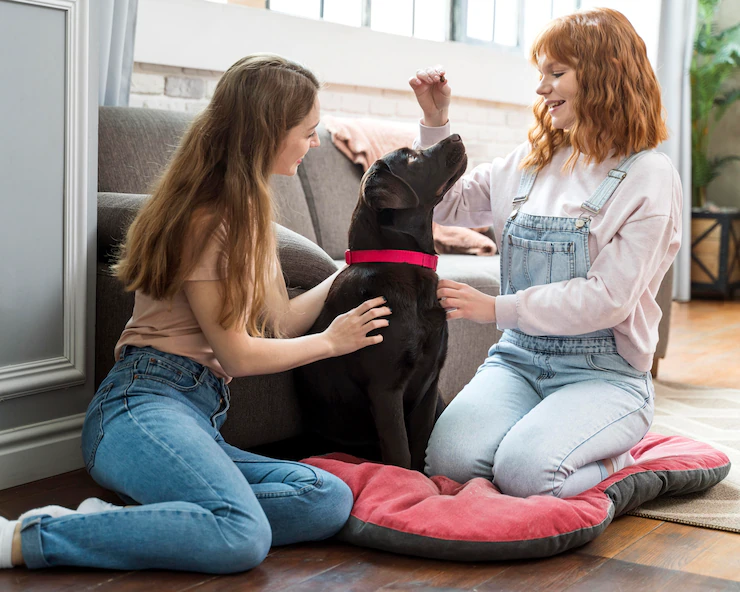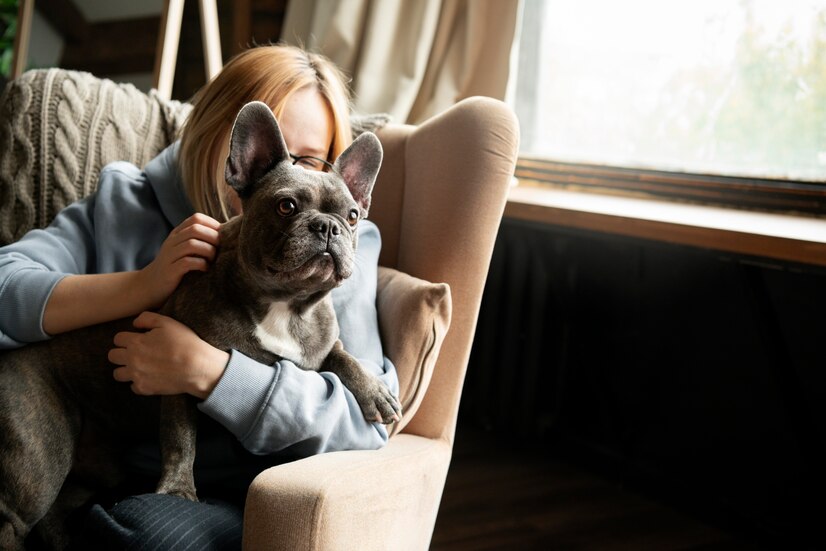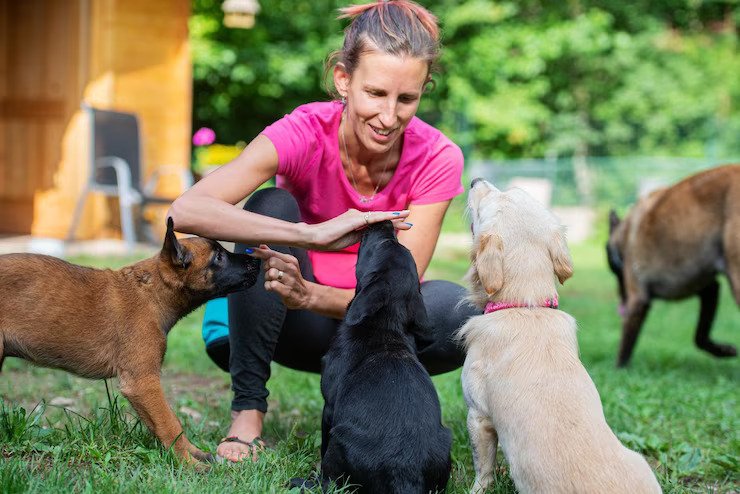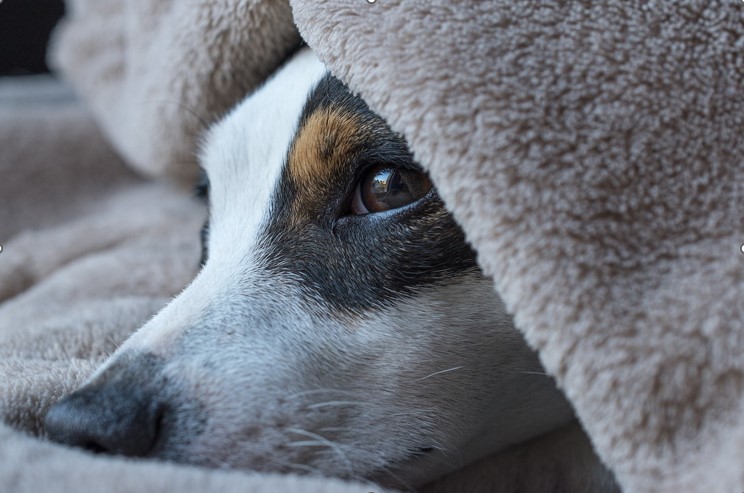Paws And Pixels Creating Pet-Centric Designs With Layers And Transparency


Hey, we wanted to share something inspiring from the creative expression field. Imagine if our deep, personal love for our darling pets were combined with the beauty of design. This is the current state of affairs, and it’s moving.
Our pets as subjects for artistic expression is a modern phenomenon. Transparency and layering are two fantastic approaches artists adopt to add enchantment to their works. Furthermore, did you know that… It’s a hit with creatives and animal lovers alike.
We’ll discuss how artists utilize techniques like layering and transparency to create striking effects.
Understanding The Purpose Of Pet-Friendly Design: Bonding With Our Animal Companions
Do you know how famous paintings depicting beloved pets have been over the years? The transformation is stunning. It’s not enough to replicate your pet’s look these days. Their goal is to extract their genuine character.
Clever use of transparency and layering characterizes pet-centric designs. This makes the artwork appear more realistic and allows the pet’s character and the unbreakable link they have with their human companions to shine through.
Adding a new layer of feeling with each pass of the brush and each new layer. It takes one essential photograph and turns it into a touching tale of love, friendship, and the many extraordinary times we’ve shared with our animal friends.
The Depth Of Layers In Pet-Centric Art
Layering Fur And Textures
At the heart of pet-centric designs lies the art of layering fur and textures. This technique is the cornerstone of achieving a realistic and tactile representation of our furry friends.
By meticulously layering different fur textures, designers breathe life into their creations, enabling realism that invites viewers to reach out and touch the fur.
The process involves carefully adding separate layers to capture various textures and markings in an animal’s coat.
Incorporating Contextual Background Elements
Incorporating background elements is a crucial aspect of pet-centric designs, and layering and transparency bring these elements to life in breathtaking ways.
Backgrounds go beyond aesthetic choices; they provide context, tell stories, and connect the pet to its environment.
Designers weave visual narratives by integrating relevant background elements that offer insight into the pet’s personality or the owner’s memories.
Transparency Techniques: Giving Life To Pet-Centric Art

Expressive Eyes
The eyes of an animal are often said to be windows to their soul. In pet-centric designs, transparency is a powerful tool to capture the depth and emotion within these eyes.
Transparency allows designers to recreate the interplay of light and shadow, bringing out the essence of the animal’s feelings.
Whimsical Accessories
Accessories, such as collars, tags, and toys, introduce an element of playfulness and narrative depth to pet-centric designs.
Transparency techniques bring these accessories to life, allowing designers to imbue them with character and movement.
Transparent layers enable designers to create intricate accessories that hold meaning, whether a collar signifies a pet’s adventurous spirit or a toy that speaks to their favorite playtime activity.
The interplay of transparency also adds dynamism to the design by simulating the movement of accessories as if they were caught mid-play.
Crafting Pet-Centric Designs: A Step-By-Step Guide
Choosing The Perfect Image
The journey of crafting a pet-centric design begins with selecting the perfect image. Beyond visual appeal, the chosen picture should capture the pet’s unique personality, characteristics, and the essence of its relationship with its human companions.
Creating The Initial Canvas
Creating the canvas is akin to setting the stage for a theatrical performance. A solid base layer is established, serving as the foundation upon which the entire design will come to life.
Canvas size is adjusted according to the design’s intended purpose, whether it’s a digital print or a larger art piece.
Layering Fur And Textures
This stage involves the meticulous layering of different fur textures and markings. Each surface is thoughtfully layered, ensuring that every brushstroke contributes to the overall realism of the design. Blending modes and brush techniques are employed to replicate fur patterns with precision.
Integrating Background Elements
Background elements are integrated to provide depth and context to the design. Transparency techniques seamlessly merge the pet with its environment, creating a harmonious narrative that captures the pet’s essence within a larger story.
Capturing Expressive Eyes
Eyes are dedicated to a distinct layer to emphasize details. Transparency brings eyes to life, capturing the depth, emotion, and sparkle.
Reflective surfaces, glints of light, and the play of shadows are all meticulously layered to create eyes that draw viewers in and evoke empathy.
Crafting Whimsical Accessories
Transparent layers are used to craft accessories that enhance the design’s narrative. Each accessory, whether a collar or a playful toy, is meticulously detailed with transparency techniques, adding depth and character to the overall composition.
Final Adjustments And Enhancements
In the final stages, designers fine-tune the layers to achieve cohesiveness and harmony. Opacity and blending modes are adjusted to create a seamless integration of elements.
Additional effects, such as shadows, highlights, and texture enhancements, are added to elevate the design’s realism and visual impact.
Conclusion
Pet-centric designs that leverage the power of layering and transparency have unveiled a mesmerizing art form that celebrates the unbreakable bond between humans and their pets.
These designs encapsulate not only the visual essence of pets but also their personalities, emotions, and the memories they create with their human companions.









Leave A Comment